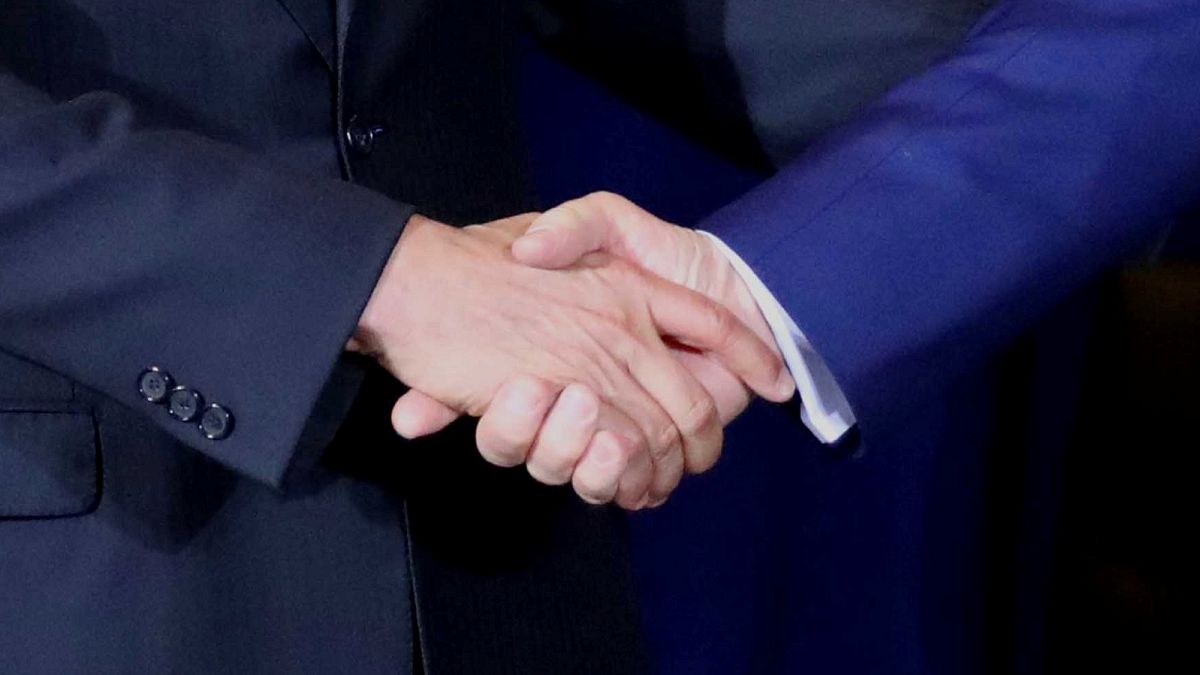European consumers and businesses stand to benefit from Free Trade Agreements (FTAs). That is why the EU should seek to lead this new era by setting global standards for bilateral trade deals.
The next EU Trade Commissioner faces a daunting in-tray. Certainty is in short supply and difficult decisions abound. Many of them are marked urgent.
Gains for populist and nationalist parties in recent European election cycles threaten to throw sand in the wheels of trade policy. These parties not only object to EU-wide cooperation in principle, they are part of a global populist wave corroding the norms of the rules-based trading system which the EU has long championed.
The new Trade Commissioner must not let this crisis go to waste. Instead, an ambitious agenda should seek to accelerate the trends that are reshaping trade. And while global trade tensions will demand attention, they should spur rather than distract from further liberalisation. Indeed, uncertainty may prove useful as countries seek reliable partners. European consumers and businesses stand to benefit from Free Trade Agreements (FTAs). That is why the EU should seek to lead this new era by setting global standards for bilateral trade deals.
The EU already punches well above its weight as a trading giant. Although its population is just 7% of the world total, its share of global exports and imports is far higher at 16%. Over 40 FTAs now stretch across over 70 markets, offering European firms predictable and preferential market access. Recent FTAs set a high bar, spanning large developed economies, including Japan and Canada, as well as dynamic emerging markets like Mexico and Vietnam. These agreements not only remove traditional barriers, such as tariffs, but promote trade in services and high standards for labour and environmental protections.
This matters because more comprehensive trade deals tend to generate bigger benefits. One in seven EU jobs depend on exports. And around half of European firms surveyed by HSBC last year consider FTAs to be beneficial to their business. The recent EU-Japan agreement is a case in point. The world’s largest such agreement is off to a flying start, with EU agriculture exports, including pork, wine and cheese, all increasing significantly since the deal entered into force in February.
So, with the Commission’s trade policy framework delivering results, what objectives should guide the future? The strategic goal should be to vigorously defend and extend the rules-based trading system.
Three areas deserve particular attention in furthering that ambition.
Over the coming decade, roughly 70%of global growth will be from countries we currently describe as emerging. That is why a focus on emerging markets holds promise. Particularly within Asia. The recent Vietnam FTA provides a template as the most ambitious EU deal with an emerging economy. The other Association of Southeast Asian Nations (ASEAN) members are standout candidates for similar deals. This could lay building blocks towards an EU-ASEAN deal at a later stage. Similarly, swift completion of an investment agreement with China, under negotiation since 2013, could unlock significant opportunities.
Correspondingly, negotiators should prioritise digital trade. Talks have started between 76 members of the World Trade Organization on rebooting the digital trade rulebook. Harnessed in the right way, digitisation and cross-border data flows can drive global trade growth. As the world’s most data-dependent trader, Europe stands to benefit from a successful outcome.
Finally, embedding sustainability criteria in trade agreements can ensure that trade remains a force for good. A standout feature of EU FTAs has been an insistence on safeguarding environmental standards and climate change considerations. The trade deal with Japan, for example, was the first EU accord to include a specific commitment to the Paris Agreement on climate change. And with Green parties having won their largest ever number of seats in the recent European Parliament elections, elevating sustainability could ease parliamentary approval of future trade deals. Future agreements should explore opportunities to promote the exchange of knowledge and technologies required for the transition to a low-carbon economy.
The true test of any trade deal is the extent to which it is actually used by businesses. Encouragingly, uptake of provisions in EU FTAs is higher than for comparable bilateral agreements. Whereas only around one-quarter of firms make full use of FTAs globally, for EU exports, it is estimated to be almost three-quarters. Further opportunities to engage and educate European firms should be sought, particularly those trading in services.
By accelerating the trends reshaping trade, the next Trade Commissioner can bring the future closer. Prioritising emerging markets, digitisation and sustainability would strengthen the EU’s position as a counterweight to protectionism. It also goes some way to future-proof trade policy. So that even in the worst case of severe disruption to the global system, EU firms can continue to exchange goods and services with the world.
Successful implementation of this approach can deliver new blood to the muscle of European economies. And if the EU can keep the heart of trade liberalisation beating, there will be many who owe their thanks, in Europe and beyond.
- Andrew Betts is Head of Trade for Europe and Global Head of Commodities at HSBC.
____________
Are you a recognised expert in your field? At Euronews, we believe all views matter. Contact us at view@euronews.com to send pitches or submissions and be part of the conversation.


